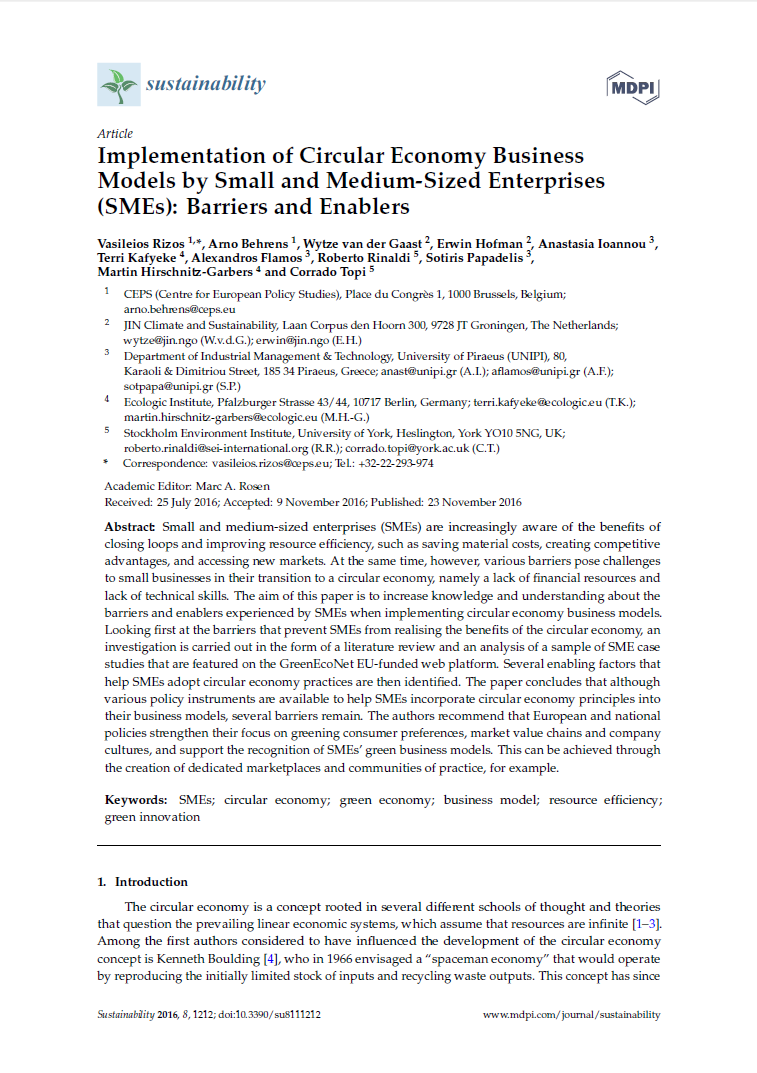Role and Challenges of SMEs in a Green(er) Economy – Transnational Networking as an Opportunity for SMEs
- Event
- Date
-
- Location
- Düren, Germany
The contribution of private enterprises and business communities toward the transition to a green economy has often been underestimated. Small and medium sized enterprises (SMEs) and corporate actors work as key players and they have the power to influence and change the socio-economic context and improve the state of the environment. Many SMEs and corporate actors have introduced innovative solutions which have greatly contributed to our understanding of a “green economy”, and have developed many important organisational, behavioural and technological approaches to the problem of sustainability. Despite these developments, a large part of the business communities lags behind the "best in class".
The GreenEcoNet consortium brings together leading research networks from across Europe. Their ambition is to connect SMEs in Europe to each other to share their experiences, innovations and best practices; and to strengthen the links between SMEs and the research community. In this context, the workshop "Role and challengers of SMEs in a green(er) economy – Transnational networking as an opportunity for SMEs" was held in order to reach out to regional stakeholders. The event was co-organized by Effizienz-Agentur NRW (EFA) and mainly targeted SMEs from the paper industry in the Meuse-Rhine Euroregion. Kanzan, a Düren-based paper producer, graciously hosted the event.
The one-day workshop brought together 22 participants from Germany, Belgium and the Netherlands. While most participants were from the paper industry, there were also some consultants and researchers who regularly work with or advise SMEs. The program of the day included presentations by Dr. Werner Rixen (Kanzan), Henning H. Sittel (EFA), Karl Hufmann (EFA) and Dr. Martin Hirschnitz-Garbers (Ecologic Institute). All presentations focused on SMEs and the green economy, and more particularly on the challenges small business must overcome in order to become green, as well as the benefits they reap from that transition. Dr. Martin Hirschnitz-Garbers also presented the GreenEcoNet platform, which is meant to be a one-stop shop for SMEs aiming to become greener. The platform is still a work in progress but already features success stories, tools, a forum and other resources to help SMEs become green.
In addition to these presentations and the discussions they generated, the program included a working group session. During this time, participants were split into three groups and invited to discuss respectively (1) transational exchange between SMEs, (2) resource efficiency in the paper industry and (3) the GreenEcoNet web platform for SMEs. The discussions were very fruitful and generated much material that will be used to help steer the GreenEcoNet project in the right direction.
The day ended with a guided tour of Kanzan during which all participants had a chance to observe all steps of the paper-making process.
The participant list and findings from the working groups can be found in the write-up of the workshop, available for download below.



